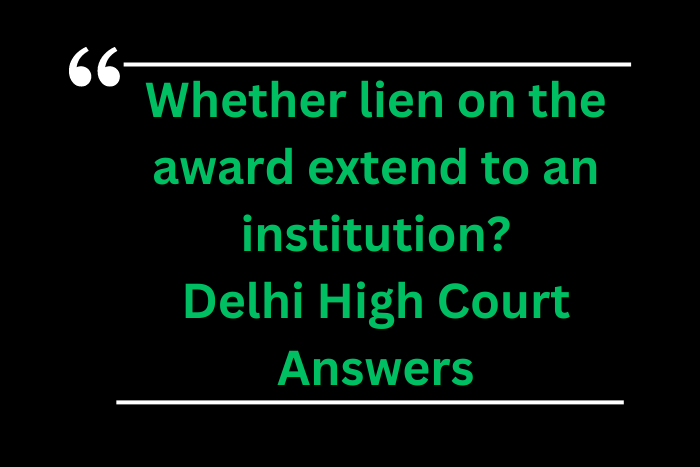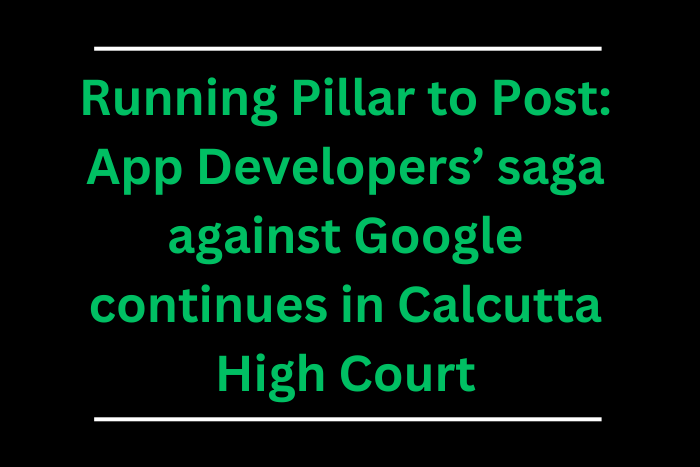The National Company Law Tribunal (“NCLAT”) through an order dated 02.09.2022 in Sundaram Brake Linings Lts & Ors. vs Chief Material Manager, Southeastern Railway and Ors. (Competition Appeal (AT) No. 19 of 2020), confirmed the findings of the Competition Commission of India (“CCI”) in its order dated 10.07.2020 (“impugned order”) that had found appellants contravening provisions of Section 3(3)(a), 3(3)(c) and 3(3)(d) read with Section 3(1) of the Competition Act, 2002 (“the Act”) and dismissed the appeal filed. The NCLAT ruled that mere ‘receipt’ of the emails does amount to an ‘exchange’ of information and itself indicates a “meeting of mind” sufficient to attract provisions of Section 3(3) of the Act.
Even receipt of the email will indicate a “meeting of mind” sufficient to attract provisions of Section 3(3) of the Act. Rules NCLAT
BRIEF FACTS OF THE CASE
The case revolves around allegations of anti-competitive behaviour, specifically cartelization, bid rigging, and collusive bidding in the context of tenders related to the Southeastern Railway. The CCI found Sundaram Brake Linings Ltd, along with individuals guilty of violating the Competition Act. These violations were primarily based on evidence suggesting coordination among competitors to manipulate bidding processes and fix prices.
The crux of the matter lies in the confession statement provided by Mr. P. Basu, an employee of Sundaram Brake Linings Ltd. The company contested the validity of this confession, claiming that Basu lacked authorization to speak on behalf of the company and that his statement was unsupported by any corroborative documentation.
However, the CCI also relied on statements from other cartel members, who confessed to engaging in coordinated practices since 2010, coinciding with the decentralization of railway tender processes. These statements indicated a longstanding arrangement among competitors to allocate tenders and fix prices collectively.
Moreover, evidence in the form of emails exchanged between cartel members further implicated Sundaram Brake Linings Ltd in the alleged collusion. These emails discussed pricing strategies and quantity allocations, suggesting active participation by the Appellant in the cartel’s activities.
SUBMISSIONS OF THE COUNSEL FOR APPELLANT
In their defense, the counsel for Sundaram Brake Linings Ltd and the individual appellants made several key arguments. They highlighted testimony from witnesses who purportedly exonerated the company and its associates from any wrongdoing. Additionally, they emphasized that while the company received information from the cartel, there was no evidence to suggest active engagement in collusive behavior. The mere receipt of information, they argued, should not be construed as a violation of the Competition Act.
Furthermore, the appellants contended that the confession of Mr. P. Basu should not be considered conclusive evidence, especially given the lack of authorization, and supporting documentation. They also challenged the notion that receiving emails from cartel members automatically implied participation in anti-competitive activities.
FINDINGS OF THE TRIBUNAL
The Tribunal, however, disagreed with the arguments put forth by the counsel for the appellants. It held that the evidence presented by the CCI, including confession statements and corroborating testimonies from other cartel members, was sufficiently robust to establish the existence of a cartel and the involvement of Sundaram Brake Linings Ltd and its associates.
In rejecting the appellants’ arguments, the Tribunal cited precedents that underscored the relaxed standards of evidence applicable in proceedings under the Competition Act. It emphasized that the focus should be on the substance of the evidence rather than strict adherence to procedural rules.
The Tribunal also referenced previous cases, such as the Beer Market case and the Federation of Corrugated Box Manufacturers of India case, to support its interpretation of bid rigging and cartelization. According to these precedents, even the exchange of information among competitors can be deemed sufficient to trigger the provisions of the Competition Act.
Moreover, the Tribunal noted the prolonged duration of the cartel activities, spanning over five years, during which Sundaram Brake Linings Ltd received emails from cartel members without objection. This passive acceptance of communication further strengthened the Tribunal’s conclusion regarding the company’s involvement in the cartel.
In light of these findings, the Tribunal dismissed the appeal on April 2, 2024, affirming the CCI’s decision and upholding the charges of anti-competitive behaviour against Sundaram Brake Linings Ltd and its associated individuals.
…
Contact us at hello@lawgacy.com to feature your firm’s deals, articles, columns, or press releases.


